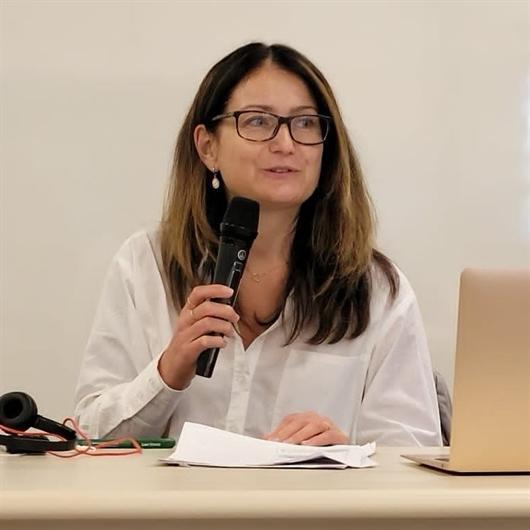Exploring Private and Public Regulation for Sustainability: The Business & Human Rights Agenda and Green Public Procurement
Last Friday, April 12th, the Research Group on Climate, Energy, and Environmental Law hosted an engaging seminar.

Main content
Last Friday, April 12th, our Research Group on Climate, Energy, and Environmental Law hosted an engaging seminar titled “Exploring Private and Public Regulation for Sustainability: The Business & Human Rights Agenda and Green Public Procurement”. We were privileged to have Dr. Nadia Bernaz from Wageningen University and Research, and PhD Candidate Federica Muscaritoli – from the University of Copenhagen as presenters. Their excellent contributions offered plenty of food for thought and sparked an exciting discussion.
Thanks to Nadia’s presentation, we got to learn a lot about the forthcoming EU Corporate Sustainability Due Diligence Directive, a pivotal initiative in the Business and Human Rights field. Nadia provided insights on the Directive’s rationale and content, and focused on its implications beyond the EU, highlighting key issues connected to the export of EU values and the Directive’s extraterritorial reach.
Federica’s presentation focused on her PhD research and allowed us to gain a deep understanding of public procurement as a tool for climate mitigation. During her presentation, Federica explored the relationship between EU public procurement and climate change and introduced a definition of low emission public procurement, which is supported by an innovative perspective on EU (environmental) constitutional law.
If you have missed the seminar or wish to watch it again, you can find the recording here, at this link.
You can also find Nadia’s and Federica’s presentations under the article.
The seminar is part of the WickedWaters seminar series and funded by the Research council of Norway under the project 341973.
A bit more about our speakers:
Nadia Bernaz
Nadia Bernaz is Associate Professor in the Law group of Wageningen University in the Netherlands. Her background is in public international law, human rights law, and international criminal law. Currently, her area of research is business and human rights. She did her PhD on international law and the death penalty at Aix-Marseille University in France. After that, she moved to Galway for a lecturer position at the Irish Centre for Human Rights; and then to London to work as a senior lecturer at Middlesex University. She has worked at Wageningen University since 2017.
Current project:
She leads the work package on past and present threats to democracy of the Horizon Europe project Rebalance Democracy and Capitalism. Within the work package, her smaller team (Wageningen University and Yaroslav Mudryi National Law University, Kharkiv) works on corporations and the rule of law.
Federica Muscaritoli
Federica Muscaritoli is a Marie Curie PhD Fellow under the SAPIENS Network at the Faculty of Law, University of Copenhagen. Her academic background includes studies in political sciences (BSc) and EU Law (LLM), with particular focus on public procurement regulation at the EU level and environmental considerations. She did her studies in Rome (Univerisita’ la Sapienza) and in Turin (Universita’ degli Studi di Torino). As part of the Erasmus programme, she had a change attend courses at Universidad Carlos III de Madrid and SciencesPo Paris. During her PhD, she was a visiting fellow at the University of Hasselt (BE) and in three different public institutions OVAM (BE), Agentschap voor Natuur en Bos (BE), Rikiskaup (IS).
Current project:
Her current research project fits into the larger project SAPIENS Network (Sustainability and Procurement in International, European and National systems. Within that project, she researches, through the lenses of legal dogmatism, the role of public procurement as a tool to mitigate carbon emissions in EU Law.




